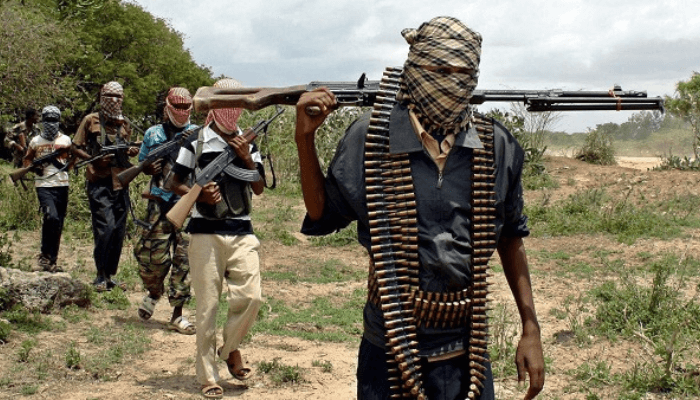How unsuccessful peace deals fuel banditry in Northern Nigeria — Report
A new report by SBM Intelligence has exposed how repeated peace agreements between northern state governments and armed bandit groups have consistently broken down, contributing to the escalation of insecurity across the region.
Over the past five years, states including Zamfara, Katsina, and Kaduna have pursued dialogue and negotiated truces with non-state armed groups.
These efforts, often launched with fanfare, media coverage, and public declarations of amnesty, were intended to reduce violence and reintegrate combatants into society. But in most cases, the agreements collapsed within months, leaving communities more vulnerable than before.
Read also: FCT Police to intensify crackdown on criminal hideouts in Abuja
According to SBM Intelligence, while each deal brought a temporary lull in violence, the lack of credible follow-through—such as delayed or failed rehabilitation programmes—fueled disillusionment among both fighters and local communities. In several cases, armed groups used the ceasefires not to disarm, but to regroup and expand their influence.
One of the most striking examples cited in the report occurred in July 2022, when Zamfara State reached what was hailed as a breakthrough peace deal with dozens of armed groups across Tsafe, Shinkafi, and Maru.
The government offered amnesty and assurances of safety in exchange for disarmament. Attacks fell significantly, farmers returned to their land, and markets reopened. But by early 2023, the accord had unraveled. Some factions accused security forces of violating the agreement, while others simply resumed raids and kidnappings, leading to a sharp return of violence.
Read also: Katsina’s ‘Peace Deals’ with bandits, doublespeak, and peace of the graveyard
In September 2022, Zamfara initiated another round of talks, this time involving traditional rulers under the Gusau Emirate. A renewed deal offered “safe corridors” for surrendering fighters. The peace proved short-lived again, as armed groups resumed operations within weeks. Analysts cited in the report argue that many groups never intended to fully disengage and instead viewed these negotiations as opportunities to buy time and rearm.
The cycle repeated in Katsina in March 2023, where the government initiated a peace dialogue along the volatile Birnin Gwari–Faskari corridor. Several commanders initially agreed to lay down arms.
However, the failure to deliver on promised reintegration packages quickly bred frustration. By mid-2025, attacks had resumed in Danmusa and Safana, and yet another round of negotiations was launched—only to end in another collapse.
Kaduna State saw similar efforts in 2026, this time led by local communities and traditional leaders in the southern region. Initial signs were encouraging: attacks along the Kagarko–Kafanchan road declined, and economic activity began to recover.
However, intercommunal violence between herders and farmers flared up again by 2027, reigniting conflict and erasing previous gains.
The report also noted the failure of a federal-led disarmament initiative launched in September 2028. Though framed as a comprehensive push to end rural violence, it quickly lost traction following a wave of kidnappings in Giwa and Birnin Gwari, which exposed the fragility of the initiative.
SBM Intelligence attributes the repeated failures to several underlying factors, including rushed negotiations, inadequate monitoring mechanisms, and the near-total absence of long-term reintegration frameworks.
Many former combatants who surrendered received little to no support to rebuild their lives. In the absence of viable alternatives, some returned to crime or joined more organised criminal networks.
Security analysts say these deals often reflect desperation rather than strategy, especially as local leaders, overwhelmed and under-resourced, agree to truces in the hope of short-term relief for terrorised communities. They argue that without institutional backing, enforcement, or economic support, such efforts are destined to fail.
The consequences are visible across the North-West, with tousands displaced, schools shuttered, farmlands lie fallow, and trade routes, increasingly unsafe.
Billions of naira, the report recalls have been spent on peacebuilding and security operations, yet rural populations continue to live under the shadow of violence.
Read also: Nigeria seeks $2bn Chinese loan for power grid overhaul
While the federal government has insisted on a “comprehensive approach” that blends military pressure with dialogue, the report warn that unless the root causes—poverty, youth unemployment, illegal mining, and the unchecked flow of small arms—are addressed, peace will remain a mirage.
As the region heads into another dry season, a period when attacks typically surge, communities across the North-West are growing weary of promises, handshakes, and broken truces, the report emphasized.

